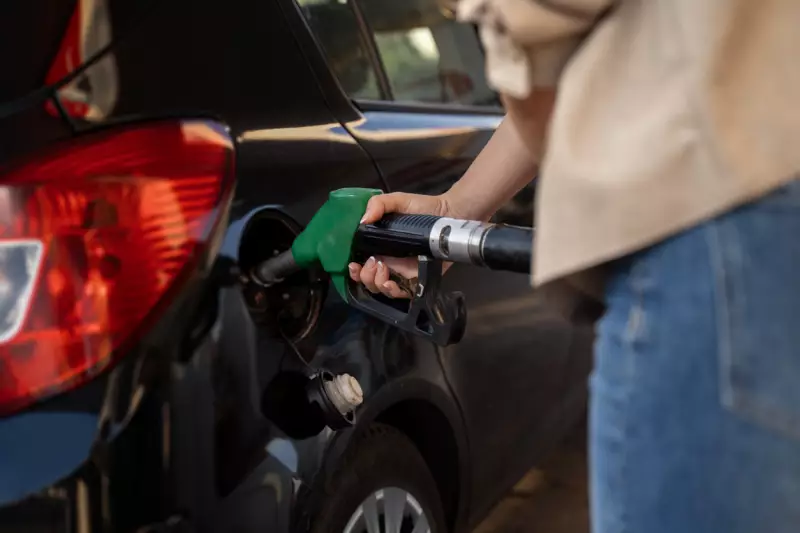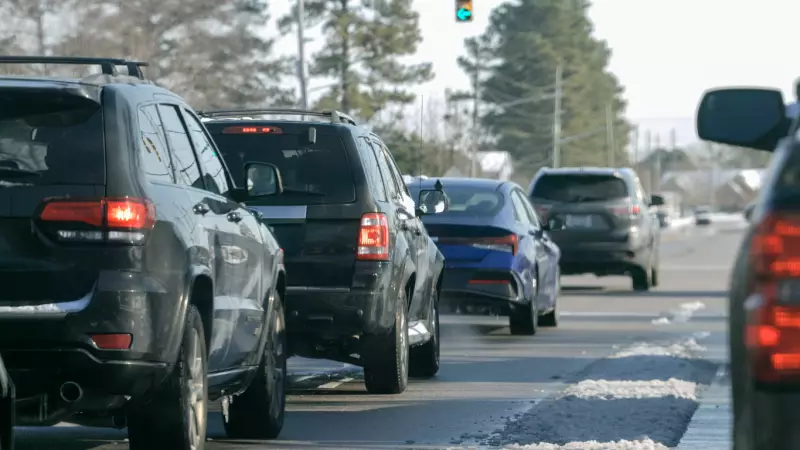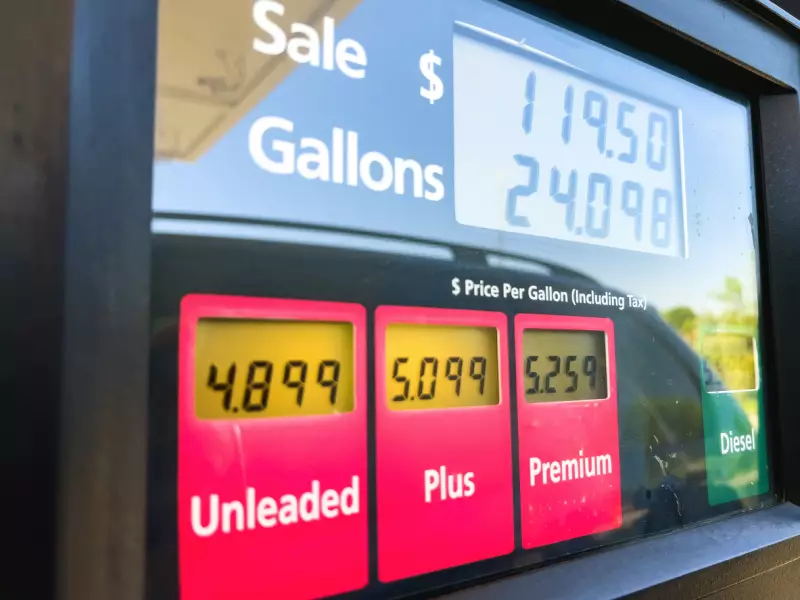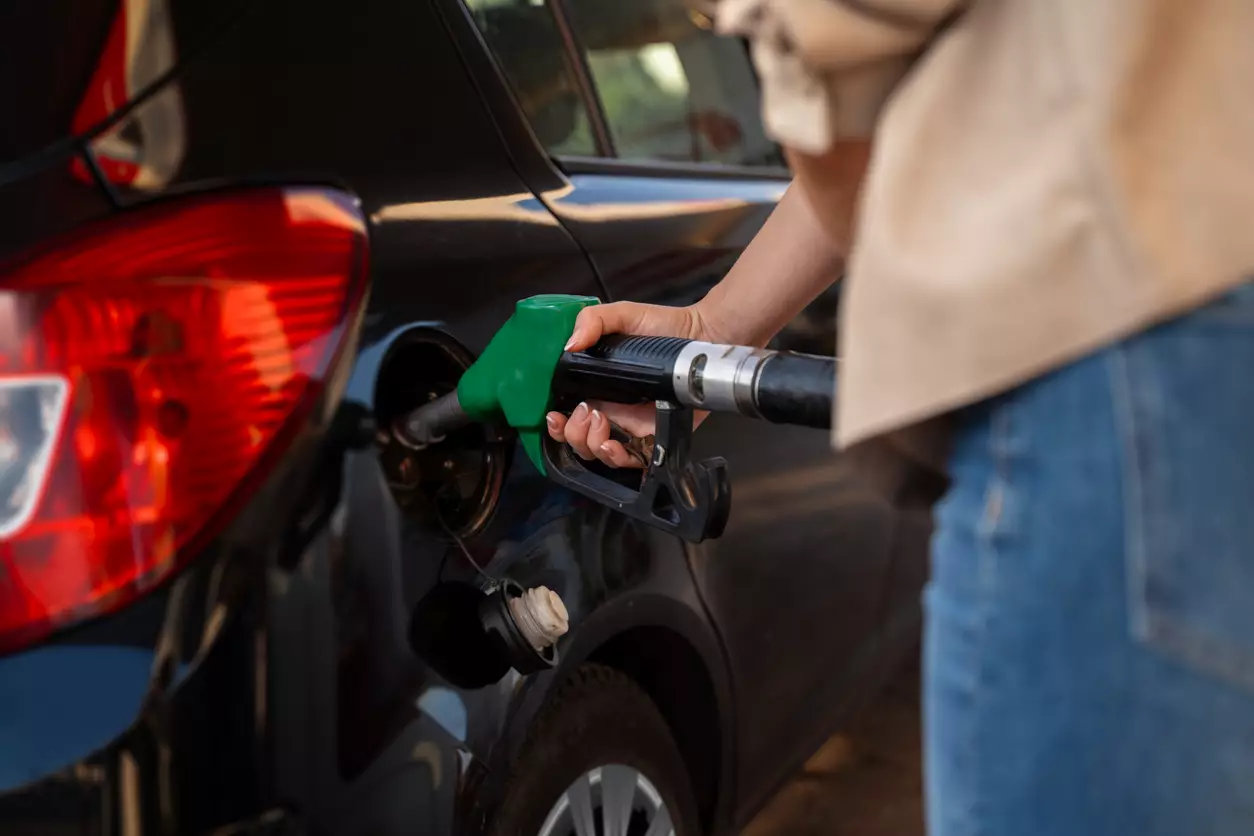Fuel economy is an important factor to consider when choosing a car. It is about how far a vehicle can go on a certain amount of fuel. Besides reducing emissions for a more eco-friendly drive, choosing a vehicle with better fuel economy may help you save money on fuel costs and the overall operating cost of the vehicle. This is unlike some gas-guzzling cars known for their poor fuel efficiency and notorious contribution to global climate change.
Whether looking to improve the efficiency of your current vehicle or getting a new car, fuel economy is a major factor to consider, especially with gas prices increasing and concerns about the environmental impact of Carbon dioxide from burning diesel and gasoline. Ultimately, choosing a car with better fuel efficiency is good for the planet and smart for your wallet.

What Is Fuel Economy and Why Does It Matter?
Fuel economy means the efficiency of a vehicle in terms of the distance it can cover per unit of fuel consumed during that trip. In other words, it is how a vehicle can efficiently make use of fuel while traveling and is a crucial factor to consider in a car’s operating cost. Fuel economy is measured as the amount of fuel consumed over a particular distance and is typically expressed as liters per 100km or miles per gallon (MPG). The lower the MPG, the more fuel is consumed over a specific distance, and the higher it is, the less fuel a car consumes over a given distance.
One vital aspect of car ownership that vehicle owners should pay rapt attention to is fuel efficiency. Anyone driving a vehicle with a high MPG rating is more likely to reduce their carbon footprint and save significantly on fuel costs over time. On the other hand, low MPG cars generally have their owners spend more on fuel costs, while also contributing greatly to environmental pollution and encouraging global climate change.
Factors That Cause Poor Fuel Economy in Cars
If you start making more frequent trips to the gas station than you used to, there is a possibility that your vehicle now has a low MPG and has become a gas-guzzling car. Generally, several reasons are responsible for poor fuel economy in cars, which may include the following:
- Engine Type and Size - Cars with big engines typically consume more gas than those with smaller engines.
- Driving Habits - How a person drives their car may ultimately lead to poor fuel economy. For instance, aggressive driving or rapid acceleration and slamming on the brakes may cause a vehicle to use more gas. Also, operating a car on unpaved roads or mountainous or hilly terrain may reduce fuel economy in the vehicle.
- Heavy Weight - The weight of a vehicle and cargo generally affects how much gas is consumed. Typically, heavier, bigger vehicles need more gas to keep going than lighter, smaller vehicles. Additional items in a vehicle increase the vehicle's weight, further reducing the vehicle's fuel economy.
- Type of Driving - Highway driving mostly requires a steady speed, which in turn helps a vehicle consume gas more efficiently. On the other hand, city driving generally uses more fuel, as the vehicle often has to stop and start at intervals. Each time a car stops and starts again, it needs more power to speed up, and that means more gas, leading to poor fuel economy. Additionally, excessive idling may lower a car’s MPG and cause poor fuel economy.
- Using the Wrong Oil - Using an oil product not recommended by a car maker may cause the engine to run with difficulty and use more gas. Also, continuous use of old oil in a vehicle’s engine may lead to poor fuel economy.
- Aerodynamics - Using a vehicle’s air conditioning system at full blast while driving slowly may consume more fuel. Similarly, driving fast with open windows generally uses more gas because open windows make a vehicle less aerodynamic, making it work harder to maintain its speed.
- Tire Status - Driving with low tires generally consumes more gas because friction with the ground is increased, requiring more power to move compared to a vehicle with tires set to a higher pressure.
Types of Cars Known for the Worst Fuel Economy
The least fuel-efficient cars generally have low MPG and are widely known for their poor fuel economy. Cars with the lowest MPG rating are typically powerful, large vehicles with big engines, and often include large trucks and SUVs, older model cars, and high-performance sports cars.

Large SUVs and Trucks
Because of their weight, size, and engine capacity, most trucks and large SUVs are gas-guzzling cars. For instance, large SUVs like the Audi SQ7/SQ8, Aston Martin DBX 707, Jeep Grand Wagoneer, BMW X5 M Competition/ X6 M Competition, Rolls-Royce Cullinan, Dodge Durango Hellcat, Cadillac Escalade-V, and Mercedes-AMG G63 rank as gas-guzzling cars and are known for having poor fuel economy.
Similarly, trucks such as the Nissan Titan PRO4X, 2020 Ford F-150, Ram 1500 TRX, 2021 GMC Sierra, 2021 Toyota Tundra 4WD, 2021 Chevrolet Silverado, and 2020 Ford F-150 Raptor are considered low MPG vehicles.
High-Performance Sports Cars
High-performance sports vehicles generally come with large and powerful engines, which are responsible for their poor fuel efficiency. This places them in the league of the least fuel-efficient cars. Examples include the Aston Martin Vantage GT, Ferrari F12berlinetta, Lamborghini Aventador Coupe, Chevrolet Corvette, Aston Martin Vanquish, Porsche 911 GT3RS, and BMW M6 Coupe.
Older Model Vehicles
Most older vehicles, with their powerful and older engines, are considered gas guzzlers because they lack the fuel-saving technologies that come with newer model cars. Such vehicles are known for their notorious fuel inefficiency and largely include muscle cars and trucks from the ‘70s and ‘80s. Examples include older Cadillac models, Pontiac Parisienne, Ford Mustang, and Dodge Charger/Challenger.
Specific Cars With the Worst Fuel Economy
The following is a list of some cars with the worst MPG ratings:
- Rolls-Royce Cullinan - Its 563-hp twin-turbo 6.7-liter V-12 engine and the weight are responsible for the high gas consumption.
- Mercedes-AMG GLA 45 4Matic - This car’s 382-hp turbo 2.0-liter inline-4 engine translates to extra performance and sacrifices fuel efficiency.
- Ford Mustang Shelby GT500 - It comes with a 760-hp supercharged 5.2-liter V-8 engine, making it one of the least fuel-efficient cars.
- Bentley Continental GT/Convertible - This car weighs over 5000 lbs and comes with a 626-hp twin-turbo 6.0-liter W-12 engine. These features are responsible for its poor fuel efficiency.
- Bugatti Chiron Pur Sport - The 1500-hp quad-turbo 8.0-liter W-16 engine makes the Bugatti Chiron Pur Sport one of the cars with the worst fuel economy.
- Dodge Durango Hellcat - This SUV runs a 710-hp supercharged 6.2-liter V8 engine, which makes it fuel-inefficient.
The Impact of Poor Fuel Economy on Owners
There are several ways in which vehicle owners feel the impact of poor fuel economy. Generally, only a small percentage of fuel energy is responsible for powering cars. The remaining part is mostly lost from powering accessories and through drivetrain inefficiencies. The loss is worse with gas-guzzling cars, which may typically lead to significant financial and environmental impacts.

The financial impacts of a vehicle’s poor fuel economy on its owner generally include the following:
- Fuel Costs - Gas-guzzling cars typically use more fuel for the same distance, vehicles with good fuel economy will cover the same distance with less gas. This ultimately makes owners of fuel-inefficient cars spend more on direct fuel costs for every mile traveled.
- Opportunity Costs - Owners of vehicles with poor fuel economy tend to spend more money on excessive gas to compensate for inefficient gas consumption. Money that could have been spent on something more beneficial ends up going into something less valuable.
- Overwhelming Maintenance Costs - Cars with poor fuel economy may need frequent parts replacement and repairs. This is because, in most cases, certain components of such vehicles, like the transmission and engine, may work harder than usual. This may put a strain on the personal finances of such car owners.
- Lower Resale Value and Decreased Lifespan - The parts of low MPG cars tend to wear out faster because inefficient driving generally stresses their key components. As a result, a long lifespan is not guaranteed for such vehicles, and they keep losing their resale value over time.
In addition to the financial impact that poor fuel economy vehicles have on their owners, gas-guzzler cars also cause several environmental harms, which may include the following:
- Air Pollution - Cars that are not fuel-efficient generate harmful gases such as carbon monoxide and other toxins and pollutants, which are capable of polluting the air and affecting public health.
- Greenhouse Gas Emissions - Vehicles with poor fuel economy may generate excessive carbon dioxide, which generally harms the climate and causes global temperatures to rise. This typically results in environmental impacts like extreme weather events and rising sea levels.
How To Avoid Cars With Poor Fuel Economy
Gas-guzzling cars are known to adversely affect the planet and are generally notorious for draining their owners’ finances. Since fuel economy is a key aspect of reducing your overall vehicle’s operating costs, doing one or more of the following may help you avoid low MPG cars:
- Research Fuel Economy Ratings - To estimate a car’s fuel economy, divide the total distance covered by the amount of gas consumed. Vehicles with about 40 to 60 MPG (or higher values) are generally considered fuel-efficient cars.
- Consider Cars with Small Engines - Cars with smaller engines are more likely to use less gas compared to those with big engines.
- Go for Electric Vehicles, New Model Cars, or Hybrid Vehicles - Electric vehicles and hybrid cars are real game changers in terms of fuel efficiency in vehicles. While electric vehicles (EVs) do not run on gas, hybrid cars typically use an electric motor with a gas engine to consume less fuel
In addition, unlike regular vehicles with gas engines, both hybrid and electric vehicles offer greener choices. While hybrid cars are designed to reduce air pollution, EVs do not pollute the environment at all. Going for any of them or new model vehicles with high MPGs may help avoid cars with poor fuel economy.




















